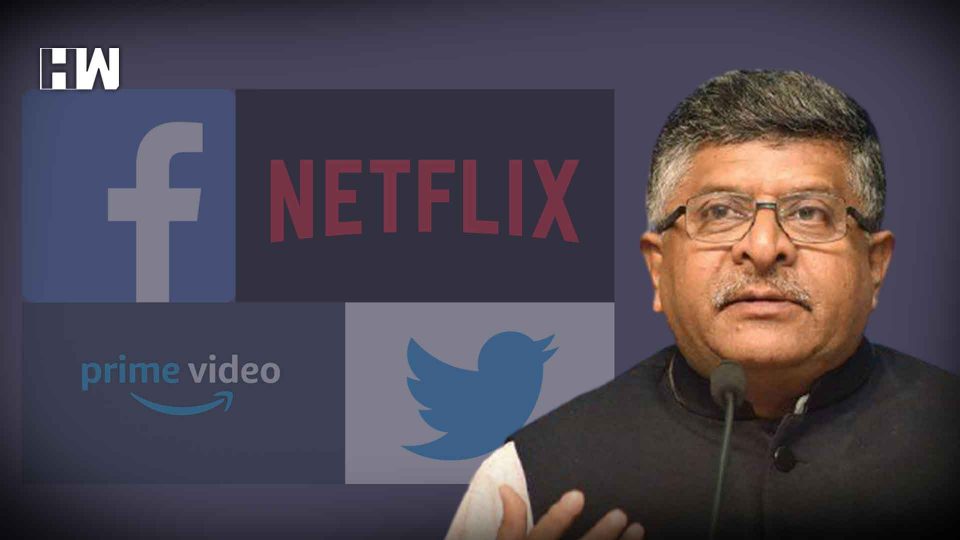The rules include a code of ethics that bans content affecting “the sovereignty and integrity of India” and that which threatens national security.
After a long wait and deliberations over the issue, the government today announced new rules to regulate digital content and establish a “soft touch progressive institutional mechanism with a level playing field” featuring a Code of Ethics and a three-tier grievance redressal framework for news sites and OTT platforms, NDTV reported. Union IT Minister Ravi Shankar Prasad said that these rules will empower users of social media.
With a strict oversight mechanism involving several ministries, the rules include a code of ethics that bans content affecting “the sovereignty and integrity of India” and that which threatens national security.
For the first time, the Information Technology (Guidelines for Intermediaries and Digital Media Ethics Code) Rules, 2021 prescribes how digital news organizations, social media platforms, and OTT streaming services will be regulated by the government.
As per reports, the oversight mechanism will include a committee with representatives from the ministries of Defence, External Affairs, Home, I&B, Law, IT, and Women and Child Development.
On complaints of violation of the Code of Ethics, this committee will have “suo motu powers” to call hearings if it wants. This committee can warn, censure, admonish or reprimand violators, seek an apology besides other actions.
An officer of the rank of a Joint Secretary or above will be designated by the government as the “Authorised Officer” who can direct blocking of content.
On prominent social media sites, the rules make traceability of the originator of messages a must, which goes against end-to-end encryption on messaging platforms such as WhatsApp and Signal.
After streaming services like Netflix and Prime Video objected to an independent appellate body for hearing streaming complaints, the new rules now force them to submit to the authority of an appeals body headed by a retired high court or Supreme Court justice. On the basis of age sex, violence, and nudity, a detailed classification of content has also been listed.
The appellate body, if believes that the content violates the law, is empowered to send the content to a government-controlled committee for blocking orders to be issued.
The code of ethics will include rules of journalistic conduct under the Press Council of India, while new websites will have to be registered on the Information and Broadcasting Ministry site.
Key points from the new rules:
- Content that is defamatory, obscene, libelous, racist, harmful to minors, threatens the unity, integrity, defense, security, or sovereignty of India, and its ties with other countries is barred
- Within 36 hours of being notified or of a court order, social media sites have to remove or disable offensive or illegal content
- Tracking of first originator of information will have to be enabled by social media messaging sites
- Within 72 hours, the intermediary has to provide information to the government agency authorized to investigate cybersecurity incidents and violations of the law.
- A grievance officer has to be appointed by companies to receive, acknowledge and resolve complaints within a month.
- Within 24 hours of a complaint, an intermediary has to remove or disable access to content that is illegal or offensive.
- A three-tier mechanism to enforce the Code of Ethics: self-regulation; self-regulation by the self-regulating bodies; government’s oversight mechanism.
- On any violation of the Code of Ethics, an online grievance portal to receive and process all grievances from the public. The grievance has to be addressed within 15 days.
- Tech giants will also have to appoint a grievance officer.
- A Chief Compliance Officer resident in India and compliance reports every six months.
As an independent media platform, we do not take advertisements from governments and corporate houses. It is you, our readers, who have supported us on our journey to do honest and unbiased journalism. Please contribute, so that we can continue to do the same in future.

